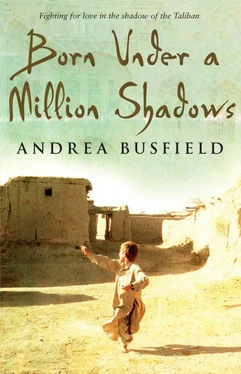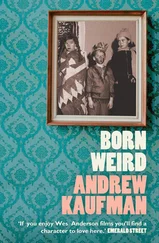But the reason I think Afghans adore poetry so much is that it lets them believe in love and its power to change everything—like the way it transformed Georgie’s tears into smiles and Shir Ahmad’s blood into water.
Not long ago, school sent me home with a poem to learn. Me and Spandi discussed it for a while, but even though we looked in every way to find a reason to love poetry as much as the men we knew, we decided it was rubbish and written by homos. We hated homos. We also hated poetry, especially poetry written by homos.
Ismerai and Haji Khan, though, who seemed to know an awful lot of homo poetry for tough men, practically had the women fainting over their words as they took center stage at our Christmas party—and there was only my mother among them who spoke Pashto. But that’s the magic of our language: you could recite a poem about a rotting cat’s ass, and it would sound like warm honey.
Of course the foreigners were also drunk, which probably helped, and they were feeling the heat of recent good fortune after licking their fingers clean from the grease of AFC’s fried chicken to accept the presents Haji Khan had brought for them. To James he had given a bottle of whiskey, which the journalist had been cradling in his arms ever since; May was now out of her blanket and wearing a deep-blue velvet kuchi dress; and Georgie was revealing a flash of gold around her neck and a flower-shaped ring on her finger. Surprisingly, given it wasn’t strictly our celebration, Haji Khan didn’t forget the Muslims in the house. He generously presented my mother with a fine red carpet for her room, handed over new boots to Shir Ahmad and Abdul, and gave envelopes of money to Jamilla, Spandi, and me, which was as horrible as it was exciting because, as all the adults mooned over one another, these packages burned holes in our pockets and all we could think of doing was escaping and finding out how much he’d given us.
In the end, the party finished in a mess of broken adults as the clock struck ten: May bolted upstairs to vomit in the bathroom; James fell down, and asleep, on the stairs; and Georgie, Spandi, and Jamilla disappeared out the door with Ismerai and Haji Khan. As my mother cleared up, and covered a very loud, snoring James with a blanket, I sneaked out into the yard to take a last look at my bike and count the dollars in my pocket. Haji Khan had placed one hundred dollars in ten-dollar bills in the envelope—more money than the National Police earn in one month! And even though I went to bed still no nearer to understanding the foreigners’ relationship with Jesus, I really hoped they would be around for his next birthday.
As I lay in my room, I looked back on the day with all of its color and surprises—a day when the rich sat with the poor, the Godless with the believers, the foreigners with Afghans, the men with women, and the children with adults. It was how a perfect world might be if people didn’t keep strangling one another in rules and laws and fear. Were we really so different from one another? If you give a boy a bike, he is going to be happy whether he is a Muslim, a Christian, or a Jew. And if you love someone truly, it doesn’t matter if he or she is Afghan or British.
But life isn’t straightforward, and just as sudden happiness can appear to brighten your day, sadness is usually only a heartbeat away. The day after Christmas my mother went to visit her sister, and my aunt repaid this kindness by trying to kill her.
 7
7 
IT WAS THICK dark in my bed when I heard a heavy thud come from the bathroom of our house. I listened hard, trying to work out the cause, but there was nothing more. Yet I must have sensed there was something wrong because I swung my legs out of the blanket’s warmth, put on my plastic slippers, and left my room.
Standing outside the bathroom door, I could clearly hear the sound of retching, violent and frightening, followed by heavy, tearful groans.
“Mother?” I knocked gently. “Mother? It’s me, Fawad.”
I heard my mother trying to get to her feet, but a whimper came with the effort and she slid down again with another dull thud.
“Mother, please!”
I turned the handle. The door opened just enough for me to see her on the floor, slumped across the hole of our toilet, cradling her stomach. Her dress was clearly soiled, and the stench of vomit and diarrhea hit me like a wall.
“No, Fawad!”
Her voice was harsh and broken, and I closed the door quickly at the terrible sound of it, trapped by the need to save her and a son’s wish to protect his mother’s shame.
“I’m going for help!” I cried, and ran into the main house to get Georgie.
Without knocking, I ran into her room and dragged at the blankets that hid her.
“Please, Georgie, please,” I begged, “it’s my mother! Get up!”
The words left my mouth with a scream, and Georgie sat upright, quickly kicking away the covers. In two strides she reached the bedroom door and pulled on the long dressing gown that hung there.
“What is it? What’s the matter with your mother?” she asked as she grabbed me by the hand and pulled me out of the door.
“I don’t know, but she’s very sick. Oh Georgie, I think she’s dying!”
I started to cry. I didn’t mean to, but it was all too much, just really too damn much. Seeing her lying on the floor, her pretty face turned white, her clothes black and filthy. I couldn’t lose my mother like this, not her as well. I loved her too much. She was all I had left in the world.
“May!” Georgie shouted as we ran down the stairs. “May, we need you!”
Both May and James jumped out from their rooms, looking sleepy and worried. James had hold of a long piece of wood.
“It’s Mariya, she’s sick,” Georgie explained.
“Fuck. Okay, I’m coming,” May answered.
“Me too, I’ll just get some clothes on,” added James.
“No! You can’t see Mariya like this,” Georgie barked at him, turning abruptly to face him. “Get dressed and take care of Fawad.”
“I want to come with you,” I protested, but Georgie was already at the bottom of the stairs and heading outside.
Quickly running after her, I caught up in time to see her push open the door of our bathroom. She paused for a moment, taking in the twisted mess that was my mother’s body.
“Oh God, Mariya…”
“Georgie, please,” my mother begged, trying to lift herself from the floor before falling back defeated. “Please, the boy, don’t let my boy see me like this.”
My mother was crying, and her body, which looked tiny as a doll’s in the half-light of the coming day, was shaking with retches and sobs. I held out my hands to her.
“Please, Mother, please stop…”
Georgie moved me back from the door and gently pushed me into the arms of James, who had by now come out of the main house. May was with him, and she carried a small black bag with her.
“Your mother will be fine, Fawad,” May said in English. “We’ll sort this out, don’t worry.”
May kissed me on the cheek and went to join Georgie, who by now had torn a strip of cloth from the bottom of her long sleeping shirt and was soaking it in cold water from the sink to wipe the sweat from my mother’s head.
For the next two hours, Georgie and May ran back and forth from our house to their own, fixing ways to keep my mother from slipping into death. They had taken my mother’s clothes, placed them in the metal trash can in the yard, and given James orders to burn them. They then sent him out for bottles of mineral water after finishing their own supplies. May had used them in the kitchen, mixing the clean water with salt and sugar, creating gallons and gallons of salty, sugary liquid, all for my mother to drink.
Читать дальше

 7
7 











